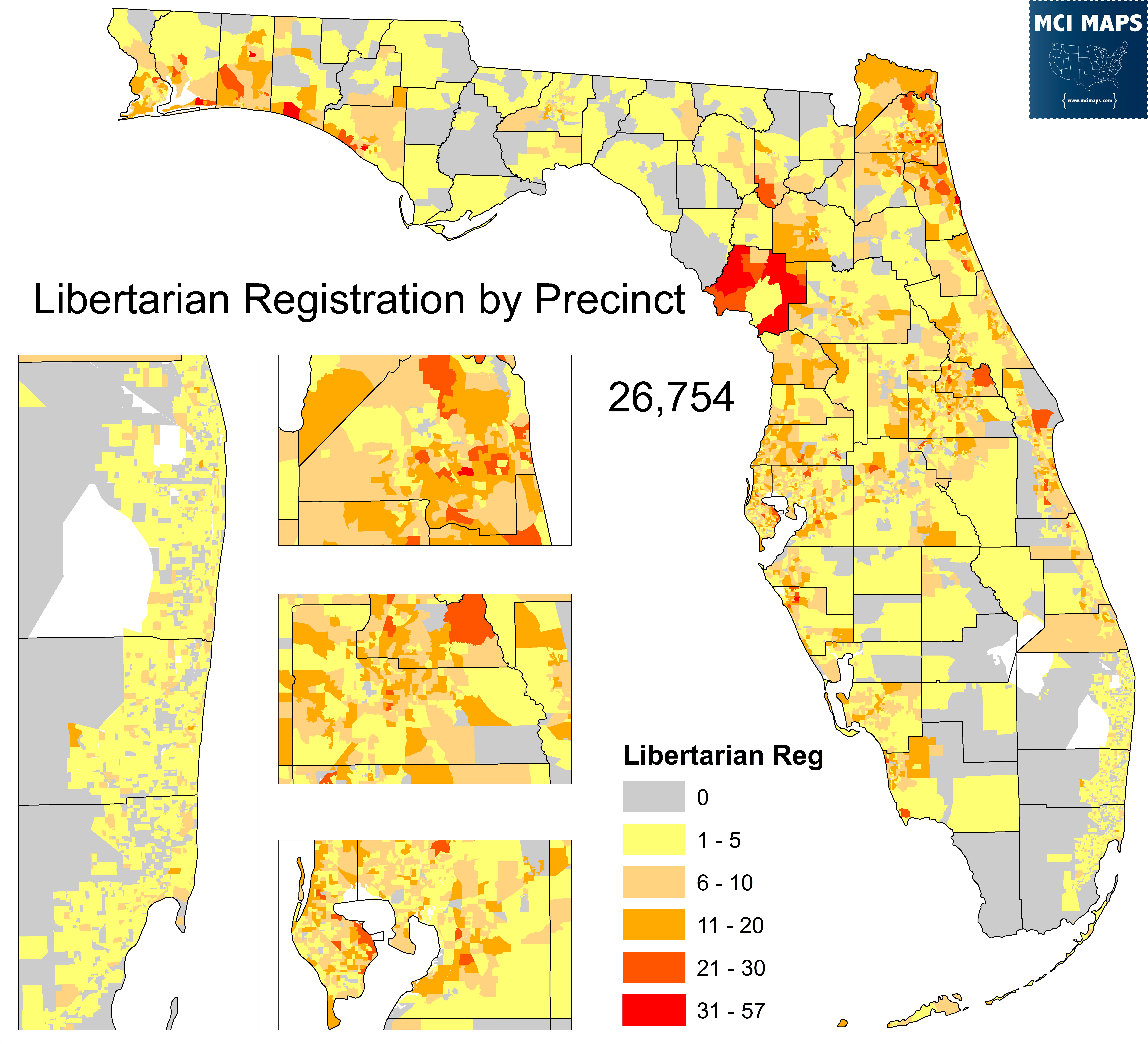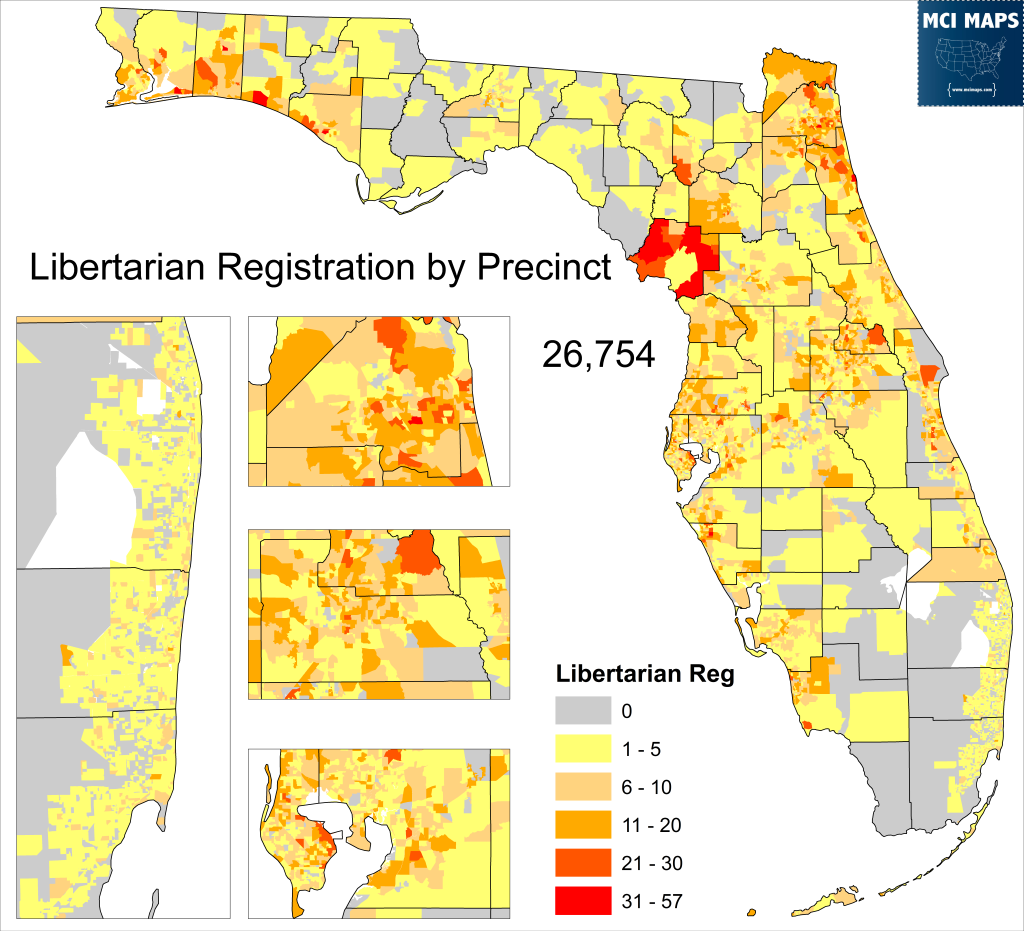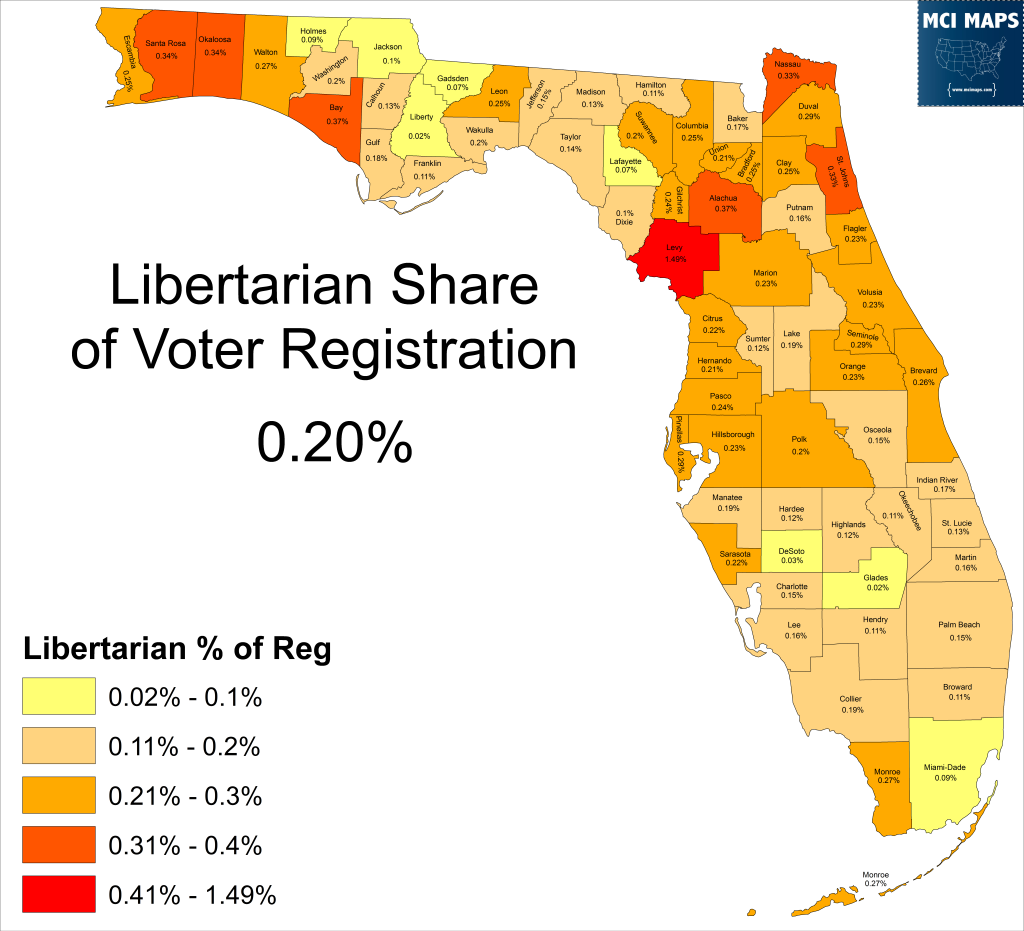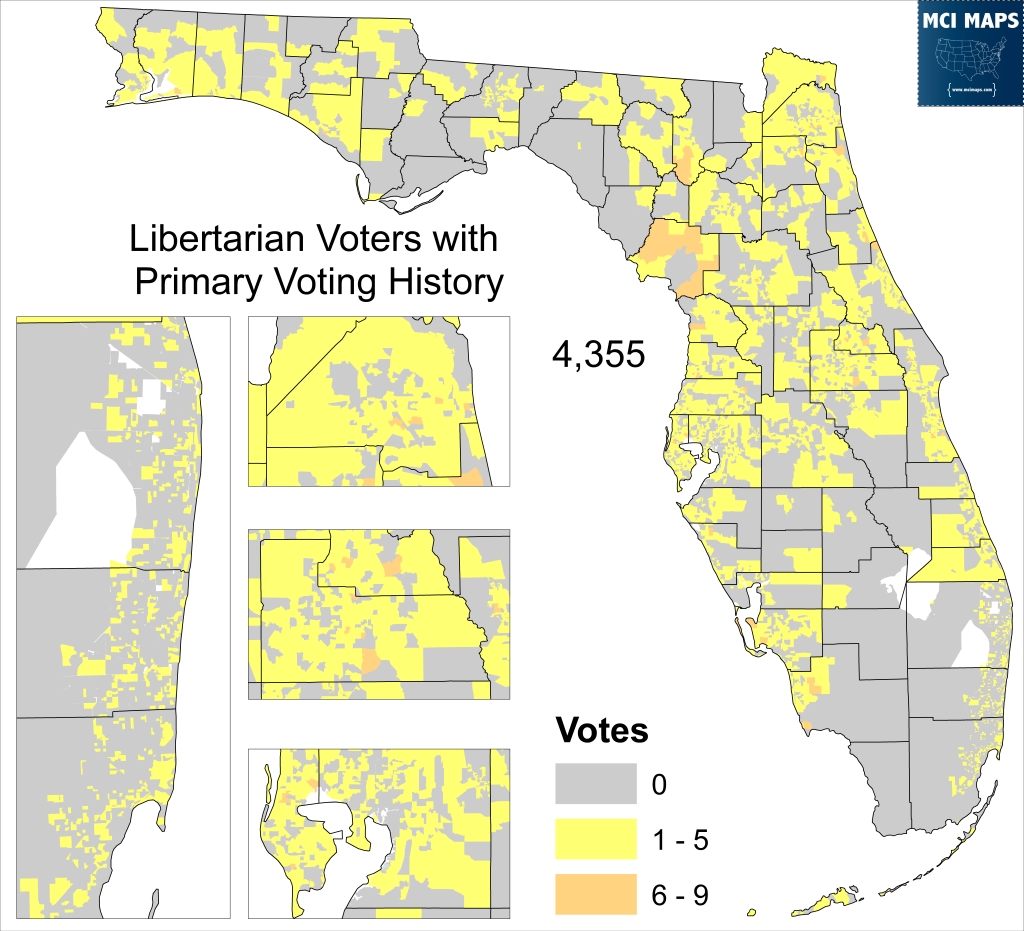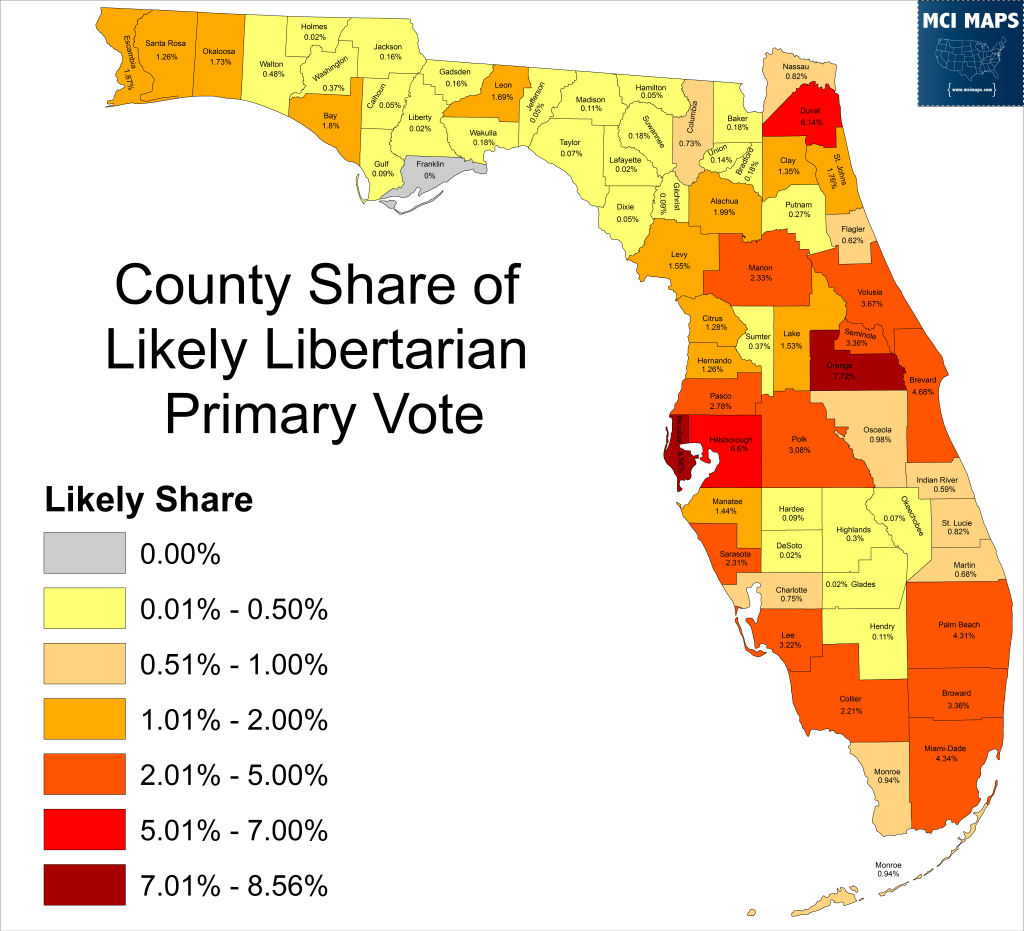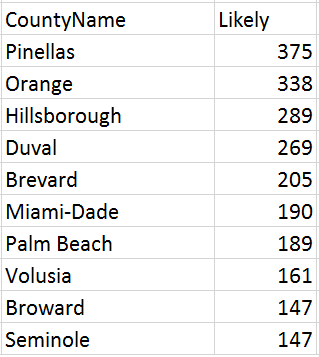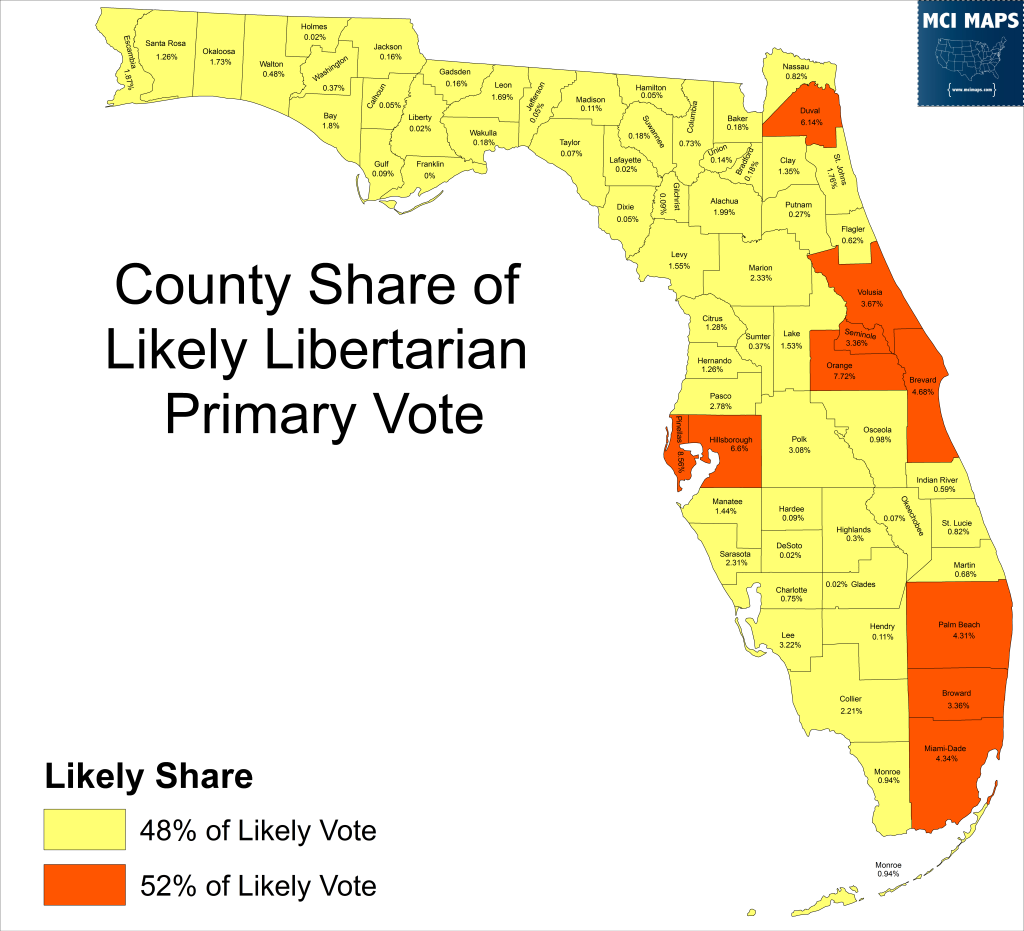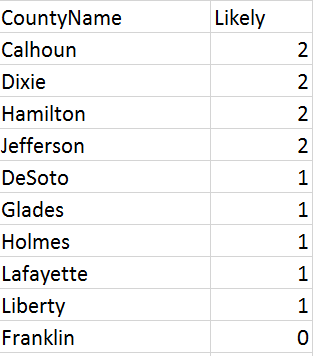On the August 30th ballot, for the first time in Florida’s history, there will be a primary for a minor party nomination for US Senate. Candidates Augustus Invictus and Paul Stanton are set to face off. The race will only be on the ballot of registered libertarians, who only make up just over 26,000 of the state’s 12.3 million registered voters.
Ultimate Outsider vs Insider Election
As my coverage of the Libertarian Convention highlighted; even minor parties have internal fights and splits. The situation is no different in this primary. Augustus Invictus’ candidacy sparked a major division in the party. The man renounced his US Citizenship, supported armed rebellion in America, and has backed the legality of eugenics. Libertarian Party chair Adrian Wyllie, the party’s 2014 Gubernatorial Candidate, resigned when his efforts to denounce Invictus nearly led to his censure for “speaking on behalf of the party.” Wyllie was outspoken in his opposition to Invictus, but a notable number of Libertarian Party members did not like the chair speaking for them. This reflects the die-hards of the party desiring little top-down-management, even at the expense of basic ethics and standards. The Vice-Chair of the party actually resigned as well when the effort to censure Wyllie failed.
Invictus generated the most headlines for his outspoken paganism. Invictus got national headlines when the story of him sacrificing a goat and drinking its blood as part of a pagan ritual was revealed. He has also refused to release his birth-name, legally changing it to Augustus Invictus, which is latin for “majestic unconquered sun.”
Invictus’ candidacy was a problem for anyone who wanted to make the Libertarian Party something to be taken seriously. There was talk of GOP operative Roger Stone running, but nothing came of it. Finally, Paul Stranton, a veteran, joined the race. Stranton qualified for the ballot with the endorsement of Gary Johnson, the party’s Presidential Candidate, and much of the Libertarian establishment. Stranton has the boilerplate Libertarian message of very limited government.
The race poses one of the starkest differences between two candidates. One that is in essence, the “establishment choice,” vs someone who would be a massive embarrassment for the party if he won the nomination. Despite the clear flaws of one candidate, it is still hard to gauge how things will play out. Neither candidate has any real money to communicate to voters with. If voters remember what Invictus is known for, then he will lose badly. But if voters have no idea who either candidate is, Invictus could win based on having a funny name and being first listed on the ballot line. St. Pete Polls looked at the race in July and found Stranton getting 22% to Invictus’ 12%, with over 60% undecided.
Where are the Voters?
If you include inactive voters (not listed by state in registration reports but still technically eligible to vote), there are just over 26,000 Libertarians in Florida. That number is so small, many of the voter precincts in Florida have none, or less than 5.
As the precinct map shows, Libertarians have small clusters of votes in Central Florida, Jacksonville, and the coastal panhandle. However, most precincts have fewer than 5, including in the dense Southeast Florida region.
Libertarians only make up 0.2% of the voter registration in the state. With Levy County sporting the highest share, 1.49%.
Libertarian share is weak in Southeast Florida, but over-performs the statewide average in the I-4 corridor and the Western Panhandle.
Of course, all 26,000 libertarians won’t show up. The turnout is expected to be low. Among Libertarians that voted in either the 2012 or 2014 August Primaries, the number is only 4,300. At a precinct level, nearly every precinct had less 5 votes cast from it.
Now it is possible the primary itself could boost turnout. However, the problem is so few voters may be aware the primary is happening due to the little money. Many voters may only see this race for the first time when they get their ballot.
Assuming turnout is largely based off of people with past voting history, a handful of counties stand out.
Tampa Bay, Orlando, and Duval have the highest vote shares. Pinellas tops the list with 375, then Orange with 338.
Dade County, the largest in the state, is 6th in terms of likely votes, and Broward, the second largest county, is 9th in terms of likely votes. The vote clusters aren’t necessarily in the counties with the largest population.
52% of the vote will likely come out of 10 counties.
On the bottom of the county list are the rural counties of Florida, many concentrated in the Northern panhandle. Some may only see a couple votes cast, if any.
The county-by-county map of the results could be interesting. One or both candidates could easily get 100% of the vote in these small counties.
Conclusion
There will be plenty to watch on primary night. However, I highly encourage you to keep an eye on the Libertarian Primary for Senate. It’s unpredictable nature and low voter pool spread over the entire state could make for an interesting result.

